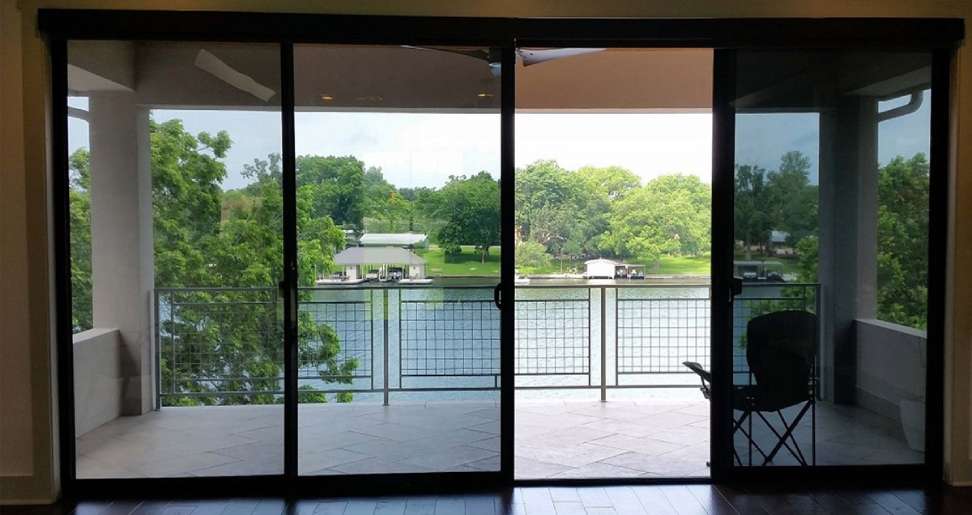In the realm of home safety and comfort, the concept of UV protection extends beyond applying sunscreen or wearing protective clothing. It also encompasses safeguarding your living environment from the harmful effects of ultraviolet (UV) radiation, which can penetrate through windows and affect both health and interior furnishings. Glass tinting emerges as a practical solution that not only enhances privacy and aesthetics but also plays a crucial role in UV protection for your home.
The Impact of UV Radiation
UV radiation, emitted by the sun, consists of UVA, UVB, and UVC rays. While the Earth’s atmosphere absorbs much of the UVC radiation, UVA and UVB rays can still penetrate through windows. Prolonged exposure to these rays can lead to various health concerns, including skin aging, skin cancer, and eye damage. Additionally, UV radiation can cause fading and deterioration of interior furnishings such as furniture, carpets, and artwork.
How Glass Tinting Works
Glass tinting involves applying a thin, transparent film to windows. This film is specially designed to reduce the amount of UV rays entering your home while allowing visible light to pass through. Depending on the type of tinting chosen, it can block up to 99% of UV rays without significantly reducing natural light transmission. This dual functionality makes glass tinting a versatile solution for maintaining a comfortable indoor environment while protecting your family and belongings from UV damage.
Benefits of Glass Tinting
- UV Protection: As mentioned, one of the primary benefits of glass tinting is its ability to block UV rays. This protection helps in reducing the risk of skin cancer, minimizes premature aging of skin, and preserves the integrity of interior furnishings over time.
- Energy Efficiency: Tinted windows can also contribute to improved energy efficiency by reducing the amount of heat entering your home during hot weather. This can lead to lower cooling costs in summer months as the tinting film acts as a barrier against solar heat gain.
- Glare Reduction: Excessive glare from sunlight can create discomfort and affect visibility indoors. Glass tinting helps in reducing glare, making it easier to watch television, work on computers, or simply relax without squinting or adjusting window coverings.
- Privacy Enhancement: Depending on the tint level chosen, glass tinting can enhance privacy by limiting the view into your home from outside during daylight hours. This is particularly beneficial for ground-floor rooms or homes situated close to neighbors.
- Aesthetic Appeal: Beyond its functional benefits, glass tinting can enhance the overall aesthetics of your home. The film comes in various shades and finishes, allowing you to choose a tint that complements your exterior architecture and interior decor.
Choosing the Right Glass Tinting
When considering glass tinting for your home, it’s essential to assess your specific needs and preferences:
- Tint Level: Decide on the level of tint darkness based on desired UV protection, privacy needs, and aesthetic preferences.
- Type of Film: There are different types of tinting films available, including dyed films, metallized films, and ceramic films, each offering varying levels of UV protection, heat rejection, and durability.
- Professional Installation: To ensure optimal performance and longevity, it’s advisable to have glass tinting installed by experienced professionals. They can provide guidance on choosing the right product and ensure proper application without damaging your windows.
Conclusion
Glass tinting serves as a multifaceted solution for homeowners seeking to enhance their living environment’s comfort, safety, and energy efficiency. By effectively reducing UV radiation penetration, tinted windows not only protect your health and preserve interior furnishings but also contribute to a more sustainable and visually appealing home. Whether you prioritize UV protection, energy savings, glare reduction, or privacy enhancement, investing in quality glass tinting can significantly enhance the overall quality of life within your home.
Incorporating glass tinting into your home improvement strategy not only addresses immediate concerns but also provides long-term benefits that resonate with both health-conscious and environmentally aware lifestyles. By understanding the role of UV protection and the advantages of glass tinting, homeowners can make informed decisions to safeguard their families and possessions while enjoying a more comfortable and aesthetically pleasing indoor environment.
Also Read:-
- Canva Went Global, Acquiring Other Organizations; Compromising Culture
- Design Of The Upcoming Pixel 8 Series Is Revealed – Buds & Pixel Watch Launch Confirmed
- Disney And Charter Finally Settled The Dispute Before The Season Opener “Monday Night Football”



Nice read, I just passed this onto a colleague who was doing a little research on that. And he actually bought me lunch because I found it for him smile So let me rephrase that: Thanks for lunch! “A human being has a natural desire to have more of a good thing than he needs.” by Mark Twain.
Your comment is awaiting moderation.